
Testosterone and Weight Loss
Table of Contents

One in four men over the age of 30 years old struggles with low testosterone. With a host of symptoms, low testosterone can completely change your life.
Patients with low testosterone levels struggle with building and maintaining the body that they work for. Their eating patterns and exercise habits aren’t reflected in their body.
If you think that you may not have enough testosterone, you may need treatment. Using testosterone weight loss pills or testosterone injections may change this neverending cycle. To learn how, keep reading.
What is Testosterone?
Testosterone is the main and most important male sex hormone. Although, it’s found in both males and females. Males produce the hormone in their testes, while females produce the hormone in their ovaries.
As a hormone, testosterone acts as a messenger molecule that plays an important role throughout the body. The hormone comes from its point of origin, flows through the bloodstream, and ends at its target destination. The destination of interest will change depending on what the body needs at that moment.
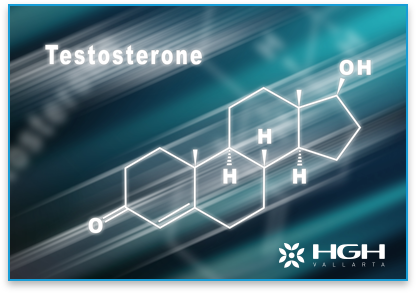

Testosterone promotes male characteristics such as a deep voice, stronger bones, facial and body hair growth, and increased muscle mass. Males must have an adequate level of testosterone to maintain their fertility.
Considering its functions, it’s no surprise that testosterone levels are higher in males than in females. But, it’s still important for female growth and development.
For both sexes, testosterone maintains muscle mass, promotes muscle growth, and increases bone strength.
If testosterone levels were to become imbalanced in either sex, it could manifest a myriad of symptoms. Both men and women may develop serious signs of low testosterone.
These symptoms begin to pop up as the body isn’t able to sustain its normal function without the help of testosterone. Whether you have too little or too much, it could be harming your body.
Ideal Testosterone Levels by Age
To understand the abnormal, we must look at the normal.
It’s natural for testosterone to decrease with age. As we lose muscle and bone, testosterone drops.
However, losing too much testosterone is concerning.
Here are the ideal testosterone levels by age and sex:
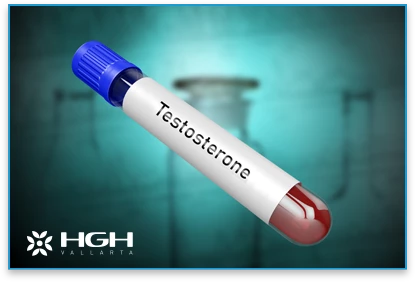

Male:
0-5 months: 75-400 ng/dL
6-9 years: 7-20 ng/dL
10-11 years: 7-130 ng/dL
12-13 years: 7-800 ng/dL
14 years: 7-1,200 ng/dL
15-16 years: 100-1,200 ng/dL
17-18 years: 300-1,200 ng/dL
19 years and older: 240-950 ng/dL
Female:
0-5 months: 20-80 ng/dL
6-9 years: 7-20 ng/dL
10-11 years: 7-44 ng/dL
12-16 years: 7-75 ng/dL
17-18 years: 20-75 ng/dL
19 years and older: 8-60 ng/dL
If you want to get your testosterone levels checked, ask your primary care physician or endocrinologist. They can test the amount of free testosterone running through your bloodstream.

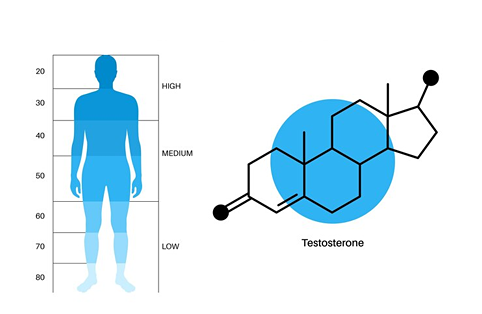
Testosterone Over the Life Span
The scientific community knows that testosterone levels decrease with age. As men get older, we can see the changes physically as well as emotionally.
Until recently, we didn’t know what caused the decline in testosterone.
Upon researching hormone pathways, scientists discovered two culprits that contribute to the decline in testosterone with aging:
1. Failing testicular function
2. Slowing hypothalamic-pituitary function
These declining levels of testosterone wouldn’t be a problem if it weren’t for the physical manifestations of hypogonadism. Aging men may experience decreased bone mineral density and decreased body mass. At the same time, it may increase the likelihood of metabolic syndrome and cardiovascular disease.
Even though older men may not worry about their fertility anymore, they should still receive testosterone replacement therapy. By helping their bodies replenish their testosterone levels, hormone therapy can remove some of the negative side effects of hypogonadism.
That said, there are some cardiovascular risks associated with testosterone replacement therapy. So, many physicians are hesitant to provide elderly men with this treatment.
If you’re wondering whether testosterone replacement is a good choice for you, talk with your primary physician about the symptoms you’re experiencing. They can help you determine the benefits and risks of testosterone injections. And, they can help you navigate alternative treatment options.
These declining levels of testosterone wouldn’t be a problem if it weren’t for the physical manifestations of hypogonadism. Aging men may experience decreased bone mineral density and decreased body mass. At the same time, it may increase the likelihood of metabolic syndrome and cardiovascular disease.
Even though older men may not worry about their fertility anymore, they should still receive testosterone replacement therapy. By helping their bodies replenish their testosterone levels, hormone therapy can remove some of the negative side effects of hypogonadism.
That said, there are some cardiovascular risks associated with testosterone replacement therapy. So, many physicians are hesitant to provide elderly men with this treatment.
If you’re wondering whether testosterone replacement is a good choice for you, talk with your primary physician about the symptoms you’re experiencing. They can help you determine the benefits and risks of testosterone injections. And, they can help you navigate alternative treatment options.


What Causes Low Testosterone?
Our bodies manage a delicate balance of hormones. Any sort of disturbance can throw off the mechanisms that our bodies have put in place. These disturbances may cause low testosterone.
Here are some of the most common causes that may lead to low levels of testosterone:
Physical injury, Bodily infection, Chemotherapy, Metabolic disorders, Pituitary dysfunction, Thyroid dysfunction, especially hypothyroidism, Certain medications, such as steroids and opioids, Alcohol abuse, Cirrhosis of the liver, Chronic kidney failure, HIV/AIDS, Inflammatory conditions, High levels of prolactin, Obesity or anorexia, Uncontrolled diabetes, Obstructive sleep apnea, Excess of estrogen, Anabolic steroid abuse, Kallman syndrome, Klinefelter syndrome, and Congenital abnormalities.
Any of these changes could be affecting your testosterone levels. In turn, your body will produce a host of symptoms to try to compensate for the changes in hormones. The symptoms that you present will depend on your sex.
• Physical injury
• Bodily infection
• Chemotherapy
• Metabolic disorders
• Pituitary dysfunction
• Thyroid dysfunction, especially hypothyroidism
• Certain medications, such as steroids and opioids
• Alcohol abuse
• Cirrhosis of the liver
• Chronic kidney failure
• HIV/AIDS
• Inflammatory conditions
• High levels of prolactin
• Obesity or anorexia
• Uncontrolled diabetes
• Obstructive sleep apnea
• Excess of estrogen
• Anabolic steroid abuse
• Kallman syndrome
• Klinefelter syndrome
• Congenital abnormalities
Any of these changes could be affecting your testosterone levels. In turn, your body will produce a host of symptoms to try to compensate for the changes in hormones. The symptoms that you present will depend on your sex.
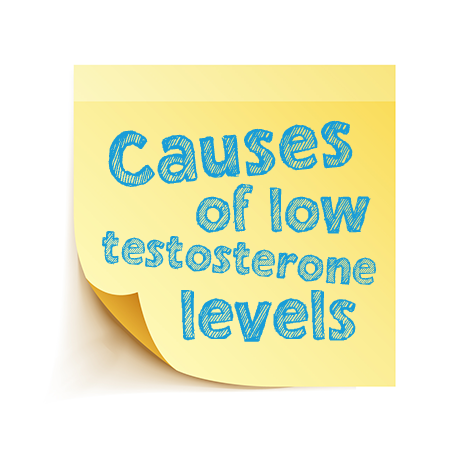

Symptoms of Low Testosterone for Males
Testosterone in men is what creates the ‘manly’ characteristics such as flat chest muscles and high metabolism. When there isn’t enough testosterone, there is a large shift in the male body.
Here are some of the symptoms that men with low testosterone may experience:
• Gynecomastia (breast development)
• Osteoporosis (bone destruction)
• Low sex drive
• Erectile dysfunction
• Depressed mood
• Poor concentration
• Memory problems
• Decreased sense of well-being
• Fatigue
• Weakness
• Moodiness
• Irritability
• Low muscular strength
• A decrease in hemoglobin may lead to anemia
• A decrease in body hair
• Increased body fat
• Infertility
If you’re experiencing any of these symptoms, you should talk to your primary care physician about testing your testosterone levels. You may have a testosterone deficiency that’s causing imbalances in your body.
If so, you can get started on testosterone injections or another kind of hormone replacement therapy. These treatments may help you regain control over your body. In turn, your symptoms should begin to subside.
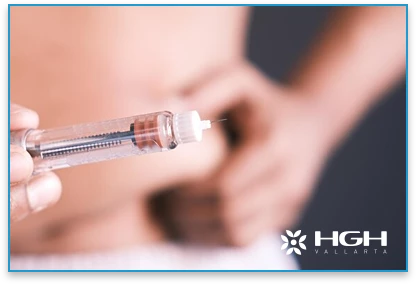

Symptoms of Low Testosterone for Females
We don’t traditionally associate testosterone with females. In fact, you may think that females want low testosterone to avoid creating manly characteristics.
But, testosterone plays a role in women’s energy levels, fertility, and metabolism. That’s why low testosterone may manifest these symptoms in women:
• Weight gain
• Irregular menstrual cycles
• Fertility issues
• Fatigue
• Weakness
• Sluggishness
• Sleep disturbances
• Decreased sex drive
• Reduced sexual satisfaction
• Vaginal dryness
• Osteoporosis
Low testosterone levels may make it difficult for women to get their daily tasks done. They don’t have the energy to do what they normally would be able to do.
On top of that, they could be struggling with fertility issues and weight gain.
Women who have any of these symptoms should talk to their primary care physician. If they find that you do have low testosterone, you should consider taking testosterone supplementation. It could help reduce your symptoms and improve your quality of life.


Can Testosterone Deficiency Lead to Weight Gain?
Testosterone helps women and men build muscle. In turn, it helps prevent us from gaining fat. For those with low testosterone, gaining fat comes easily while building muscle becomes more difficult.
Testosterone also indirectly affects the levels of fat that we store.
Muscles burn more calories than fat does. So, not having enough muscle can make it easier for people to gain weight. Their bodies take the excess calories and create more fat. Further, obesity itself can cause even bigger problems.
How Obesity Can Reduce Testosterone Production
You can gain weight because of low testosterone. And, you can develop low testosterone because you’ve gained weight.
It’s a nasty cycle.
With each one-point increase in BMI (body mass index), you’ll lose 2% of your testosterone. This is why overweight men are more likely to have lower testosterone levels than men of normal weight.
So, men with low testosterone levels may gain weight. And, those same men may become obese and lose even more testosterone which leads to more weight gain.
While scientists aren’t completely sure why obesity leads to lower testosterone levels, there is a strong theory.
The fat that accumulates in our abdomens has high levels of aromatase, which is an enzyme that converts testosterone into estrogen. This can lead to high levels of estrogen and low levels of testosterone in overweight and obese individuals.
High levels of aromatase and estrogen inhibit gonadotropin-releasing hormone (GRH) production in the body. If your GRH levels become too low, the hormone won’t be able to release enough luteinizing hormone in the body. Since luteinizing hormone is directly related to testosterone, levels of both hormones will decrease.
All in all, this complicated hormone path tells us that excessive abdominal fat can suppress the production of testosterone.

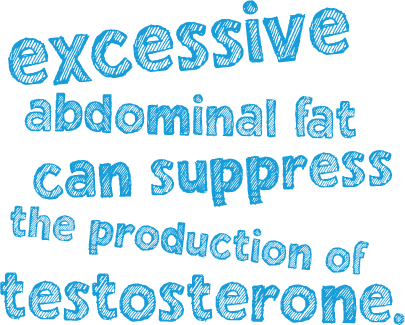
While scientists aren’t completely sure why obesity leads to lower testosterone levels, there is a strong theory.
The fat that accumulates in our abdomens has high levels of aromatase, which is an enzyme that converts testosterone into estrogen. This can lead to high levels of estrogen and low levels of testosterone in overweight and obese individuals.
High levels of aromatase and estrogen inhibit gonadotropin-releasing hormone (GRH) production in the body. If your GRH levels become too low, the hormone won’t be able to release enough luteinizing hormone in the body. Since luteinizing hormone is directly related to testosterone, levels of both hormones will decrease.
All in all, this complicated hormone path tells us that excessive abdominal fat can suppress the production of testosterone.
How Can I Increase My Testosterone Levels?
Testosterone replacement therapy is the most effective treatment for low testosterone. However, there are risks and benefits that you should consider before jumping to medicinal solutions.
We’ll talk more about your testosterone supplementation options later.
First, your physician may recommend that you try a few natural solutions for low testosterone first:


• Incorporate strength training into your workout routine to increase your levels
of testosterone
• Take vitamin D supplements to promote testosterone production in the body
• Get an adequate amount of zinc through your diet by eating meats, nuts,
and seeds
• Get enough sleep every night to ensure that you’re promoting a healthy
environment for balanced hormones
• Consider taking ashwagandha to improve testosterone levels and promote
fertility
• Minimize stress as the stress hormone, cortisol, can suppress
testosterone levels
Each one of these strategies may be able to help you get your testosterone levels up while improving your overall health.
Many patients with low testosterone have already tried many – if not all – of these methods. As patients begin to gain weight, they may implement many of these strategies into their daily routine. And, they may not see a difference in the symptoms they’re showing.
When lifestyle changes aren’t making a difference, it’s time to consider hormone replacement therapy.
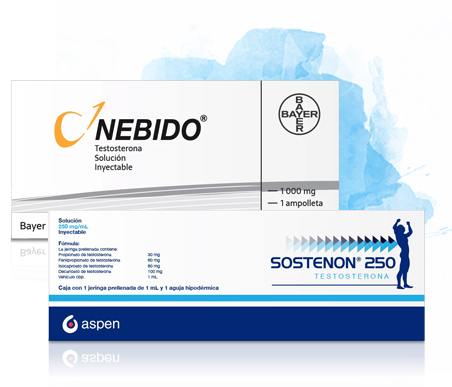

Can Testosterone Injections Help Patients Lose Weight?
Long-term testosterone therapy helps both women and men lose weight and keep it off.
In a testosterone replacement therapy study, researchers found that patients taking the hormone replacement injections lost 20% of their body weight on average. On the other hand, those who didn’t receive testosterone injections gained 4% of their body weight by their ten-year follow-up appointments.
In the same study, men taking testosterone replacement therapy had an average loss of 4.9 inches around their waist. At the same time, their BMIs decreased by 7.3 points on average.
Those who didn’t receive the replacement therapy experienced an increase in waist circumference of 1.8 inches and a BMI increase of 0.9 points.
Other researchers looking at the effects of testosterone replacement therapy noted an increase in energy levels. This can help women and men with low testosterone incorporate more exercise into their daily routines.
With more energy and higher activity levels, these individuals can adopt the lifestyle habits that they need to bolster the effects of testosterone replacement therapy.
Additionally, the testosterone they’re taking in is helping them gain muscle. As we discussed earlier, testosterone can help the body create muscle and lose fat. And, muscle burns more calories than fat so it can help patients maintain a normal weight.


How Testosterone Therapy Helps With Weight Loss
Testosterone therapy helps with weight loss by increasing the amount of testosterone in your system. Low testosterone leads to weight gain. So, increasing your testosterone levels can help with weight loss.
With normal levels of testosterone, testosterone therapy patients may experience weight loss, muscle gain, lower BMI, and decreased waist circumference.
How Long Does it Take to Lose Weight on Testosterone?
Testosterone therapy may take 6-36 months to increase testosterone levels enough. The exact amount of time will depend on how low your testosterone levels are and how well your body reacts to the replacement therapy.
Your physician can monitor your testosterone levels and dosage as you’re taking hormone replacement therapy. With this data, they can help track the effectiveness of your treatment.

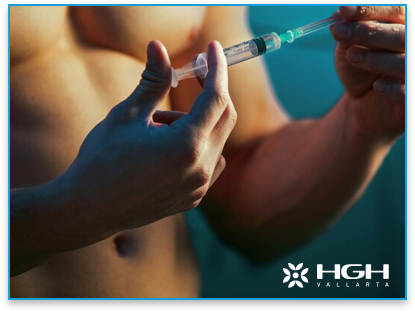
Best Testosterone Injection for Weight Loss
The best testosterone for weight loss will depend on your weight loss goals and current health history.
Right now, there are four kinds of testosterone injections on the market:
• Enanthate
• Cypionate
• Propionate
• Testosterone Suspension
Enanthate is a derivative of testosterone. It is an intramuscular injectable that patients receive every five days.
Cypionate is an ester form of testosterone with eight carbon atoms. This different design makes Cypionate a long-acting testosterone medication that the body metabolizes throughout 7-8 days. So, patients get their dosage of this medication every 7 days.
Propionate is a slow-releasing anabolic steroid that helps patients see results in a shorter time frame. This medication is only given in special cases because of its fast frequency of administration.
Testosterone Suspensions don’t have esters so they’re more potent than the other options. Physicians often don’t recommend this injectable since the potency of the medication often outweighs the benefits that patients receive from taking it.


Each type of testosterone injection has its own benefits and risks. To determine which one is right for you, you should speak with your physician.
Propionate may be right for you because of your current cardiovascular risk.
Or, Cypionate may be the right choice because of scheduling needs.
This is a decision that you should leave to your physician. They’ll be able to weigh your options and help you pick the best one for your lifestyle.
What are the Best Methods to Raise Testosterone Levels?
Ideally, you’ll be able to use natural methods to raise your testosterone levels. Natural remedies for low testosterone include the following:
• Getting more sleep
• Maintaining a balanced diet
• Losing weight
• Staying active
• Reducing stress
• Taking a multivitamin daily
• Replacing testosterone-suppressing medications (with the help of your primary
care physician)
• Limiting alcohol use
• Avoiding drug use


However, many patients don’t see any changes after implementing these strategies. After all, each one of these strategies is a part of the spiel that every physician gives patients at their annual checkups.
For the most part, we’re all told to sleep more, eat better, and reach a healthy weight.
If you’re overweight or obese because of low testosterone, you’ve often had this conversation with your doctor more than once. Sometimes, eating right and exercising daily isn’t enough. Your body is resistant to change if it doesn’t have the hormones it needs.
Patients who struggle with body stagnance during habit changes can begin to feel hopeless. You may be doing everything your physician is telling you to do and not seeing any results.
If these lifestyle changes don’t work for you, your physician may recommend that you try testosterone-boosting medications or hormone replacement therapy.
The dosage and frequency of testosterone therapy will depend on the severity of your testosterone imbalance and how it’s affecting your body.
Talk to your physician for specific details about your health.
Is Testosterone Replacement Therapy for Low Testosterone Safe?
Testosterone replacement therapy is completely safe, as long as your physician is guiding your treatment regimen.
Unfortunately, testosterone therapy isn’t as straightforward as a treatment for something simpler, like hypertension.
With hypertension, your physician can look at your blood pressure levels and determine whether you’re on the right dose. They can also look at symptoms and signs to determine how your blood pressure levels may be affecting your body.
Your physician is able to check your testosterone levels. But, your body’s response is untrackable, at least for now.
Researchers are finding promising results in testosterone therapy. But, there are some tweaks to work out when it comes to dosage and frequency of administration.
There are a few testosterone injections out and available to patients now. But, you should communicate with your physician about whether any of these choices is the right one for you.
Testosterone replacement therapy is safe if you’re under the guidance of a physician or other trained, knowledgeable medical professional. Using your medical history and current symptoms, they’ll be able to determine the safest and most effective course of treatment to take.
As you try testosterone therapy, your medical professional will be with you along the way. They’ll monitor your testosterone levels and evaluate symptom changes.
While the answer may not be concrete, your physician has the training necessary to find the right balance for you.
Never attempt to find the answers on your own. If you feel that your current physician isn’t open to hormone replacement therapy, you should consider seeking a second opinion.


Your physician is able to check your testosterone levels. But, your body’s response is untrackable, at least for now.
Researchers are finding promising results in testosterone therapy. But, there are some tweaks to work out when it comes to dosage and frequency of administration.
There are a few testosterone injections out and available to patients now. But, you should communicate with your physician about whether any of these choices is the right one for you.
Testosterone replacement therapy is safe if you’re under the guidance of a physician or other trained, knowledgeable medical professional. Using your medical history and current symptoms, they’ll be able to determine the safest and most effective course of treatment to take.
As you try testosterone therapy, your medical professional will be with you along the way. They’ll monitor your testosterone levels and evaluate symptom changes.
While the answer may not be concrete, your physician has the training necessary to find the right balance for you.
Never attempt to find the answers on your own. If you feel that your current physician isn’t open to hormone replacement therapy, you should consider seeking a second opinion.
What are the Risks of Taking Testosterone Replacement Therapy?
As a hormone, testosterone has effects all over the body. So, patients taking testosterone replacement therapy may face a few potential risks:
• Production of new or worsening of existing acne
• Development of skin rashes, redness, or other changes
• Limitation of sperm production in men
• Shrinkage of the testicles in men
• Growth of breasts in men
• Noncancerous growth of the prostate gland (benign prostatic hyperplasia
(BPH)) or growth of existing prostate cancer in men
• Worsening pre-existing sleep apnea
• Stimulation of blood cell development, which could lead to blood clot formation


Researchers have linked testosterone hormone therapy to multiple risks and dangers, including heart disease. However, many physicians believe that these adverse effects may be the result of over-dosing testosterone.
In other words, these adverse effects may have resulted from patients receiving too much testosterone.
Like you don’t want too little testosterone, you don’t want too much. Either end of the spectrum could leave you with dangerous symptoms.
Patients who receive adequate dosing from their physicians may not be at risk for some of these conditions. You should talk to your physician about the dangers of your dose level and what signs you should look out for in case of an adverse effect.
Testosterone Weight Loss Pills
Testosterone is one of the most important hormones in our bodies. It helps our bodies complete a myriad of tasks. Without it, our bodies can’t sustain normal function.
This causes bone thinning, moodiness, infertility, and more. One of the most annoying side effects is weight gain.
Often, patients can’t get the weight off no matter what they do. Eating perfectly and working out 24/7 couldn’t get the weight off because of the hormone imbalance lying underneath the surface.
If you’re struggling with weight gain from low testosterone, it may be time to consider testosterone weight loss pills. These can help rebalance your body’s testosterone levels and may help you feel like new again.


